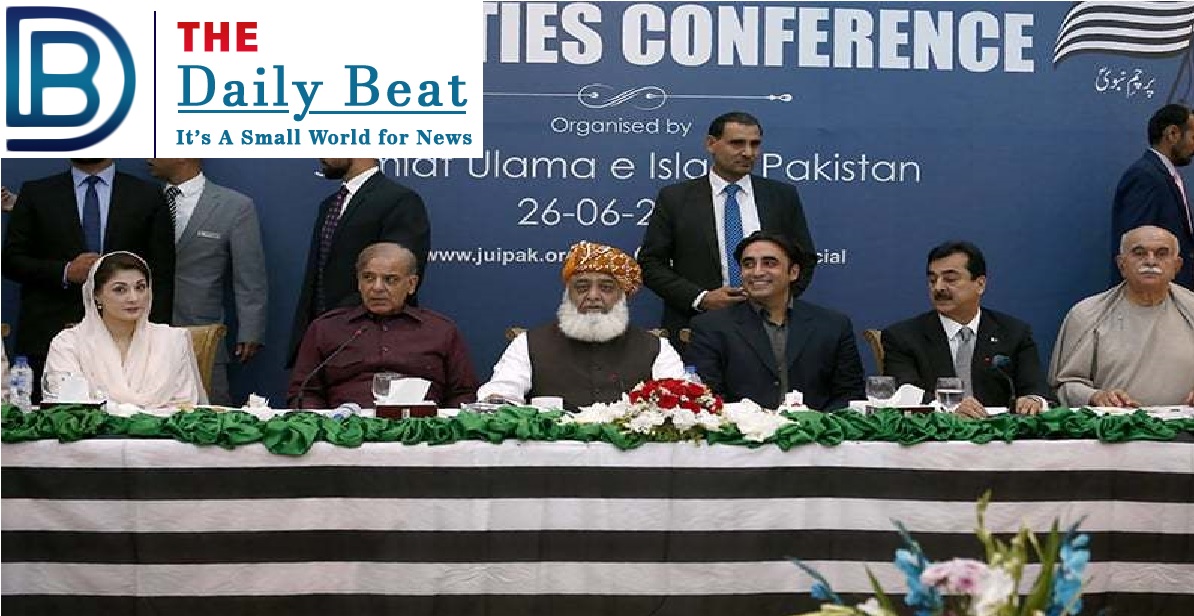Political rallies in Pakistan have been the norm since the very beginning. When a huge number of people turn to the streets against Ayyub khan. However, in the current scenario, case in point the PDM rallies, these rallies have transformed from being the eviction of wrong to self-centered agendas. The polarized, us v/s them, politics In Pakistan are the greatest hurdles for democracy.
An anti-government movement has arisen in Pakistan amid a deteriorating financial crisis of the country. The Pakistan Democratic Movement (PDM), a coalition of 11 political parties from the opposition, was formed in September and has held enormous meetings in three significant urban communities. It designs more fights in the coming weeks and means to walk towards Islamabad. PDM embarks on being the democratic voice of the country, demanding resignation from Prime Minister Imran Khan. On the other hand, Imran khan’s government is calling this action of opposition an anti-state operation that is not in the interest of Pakistan.
This divide between the political landscapes of Pakistan is giving rise to the polarized state. The us and them camps, giving rise to in-group and out-group politics generate feelings of animosity between two parts of the state. If there is rising distrust, bias, and enmity it creates the perception of “if you win, I lose”. This polarization and partisanship in Pakistan have come to be the norm rather than the exception leading to the failure of democracy.
A country can be formed by efforts of a few decades, however, to transgress into being a Nation, efforts from all institutions are necessary. The political parties of Pakistan however are supporting the ethnic and linguistic divide present between the people of Pakistan. If we take the example of Karachi, which has the potential to become the hub of modernization and industrialization of the region is barely surviving due to the divides of MUHAJIR, SINDHI AND PUKHTOON, different political parties such as MQM, PPP, and ANP support these to secure their vote bank.
Constituency politics in Pakistan is fed upon caste and sectarian-based polarization. The parties aimed at strengthening their vote bank at the cost of national cohesion. The casts and different secs are constantly provoked against each other to create hegemony over divided people. Many military wings such as Sipah-e-Sahabah, Jaish-e-Muhammad are byproducts of such games played and results in compromising national security and integrity.
Conflict as long as stays within the walls of parliament, productive results and measures aimed at development can be taken, however, when differences are taken out in streets and foul play of language is done in front of the camera it not only maligns the Nation’s image internationally but weakens the trust of people in a democracy. Lack of political reforms, which could have come from parliamentary debates weaken the state machinery. When the political elites are divided and spend the most time on outing the other group, poor governance and weak intuitions are the outcomes. The void that is created due to this leads to distrust among the masses.
In a weakened democracy, a clash of institutions and interference in each other’s avenues become quite apparent. The void created by the government is then filled by other institutions such as the judiciary or military. In the past chief justice, Iftikhar Chaudhry has taken many Suo Motu actions that were against norms of the apex court. Similarly, military dictators have interfered in politics many a time. The continuous prosecution of political opponents creates incentives for the military to dissolve the constitution and overtook the country’s leadership. Many people being tired of political parties airing their dirty laundry openly start looking for a “messiah in boots” for deliverance. The truth, however, is that even bad democracy is better than no democracy and other non-elected forces.
These Dharna politics lead to all these divisions among the people as well as governance. Polarization of ideologies can be understood but all these parties have similar manifesto the fight thus here is for personal political gains and power hunger. The weakening of constituency and society halts development. Each side perceives the other political party and their allies as a danger to their agendas or their lifestyle if that other political party is in power. For that reason, the officeholder party endures more close-minded and progressively authoritarian conduct to remain in power, while the rivals are increasingly ready to turn to undemocratic intends, rallies, foul language, and long marches to eliminate them from power.
This Threatens democracy and calls for the opposition and the part holding office to work together in a balance for the state to work as well-oiled machinery with all parts doing work intended for them.

Author is a graduate from Quaid-e-Azam University with majors in international relations. She loves to sit with a cup of coffee to pen down her thoughts. She is keen towards finding potential solutions to problems that concern the world.
